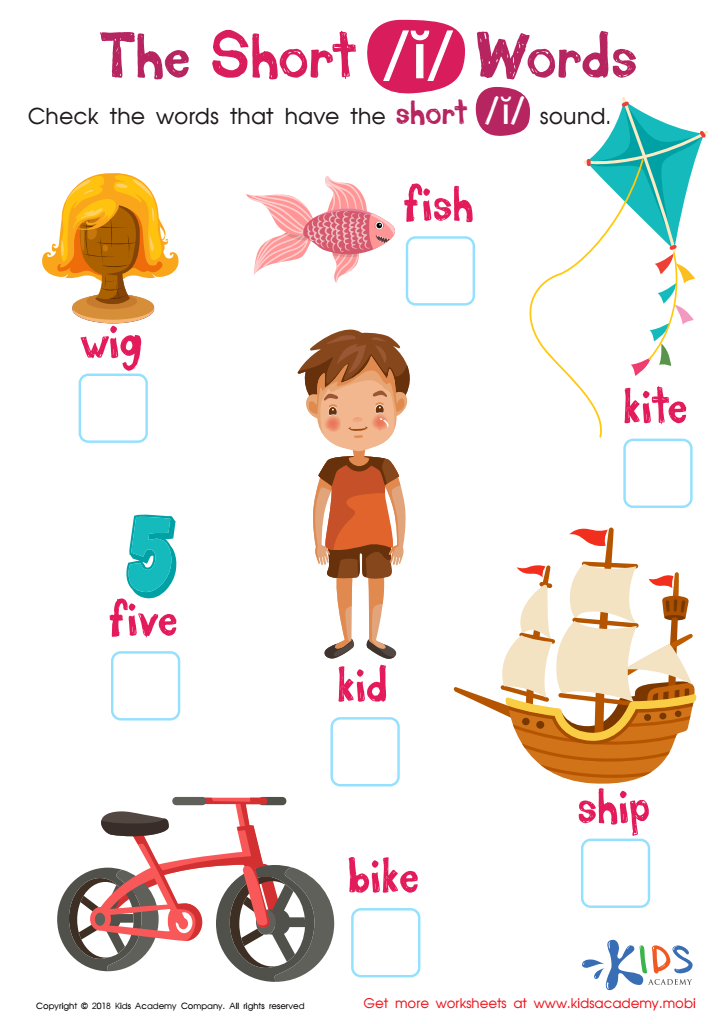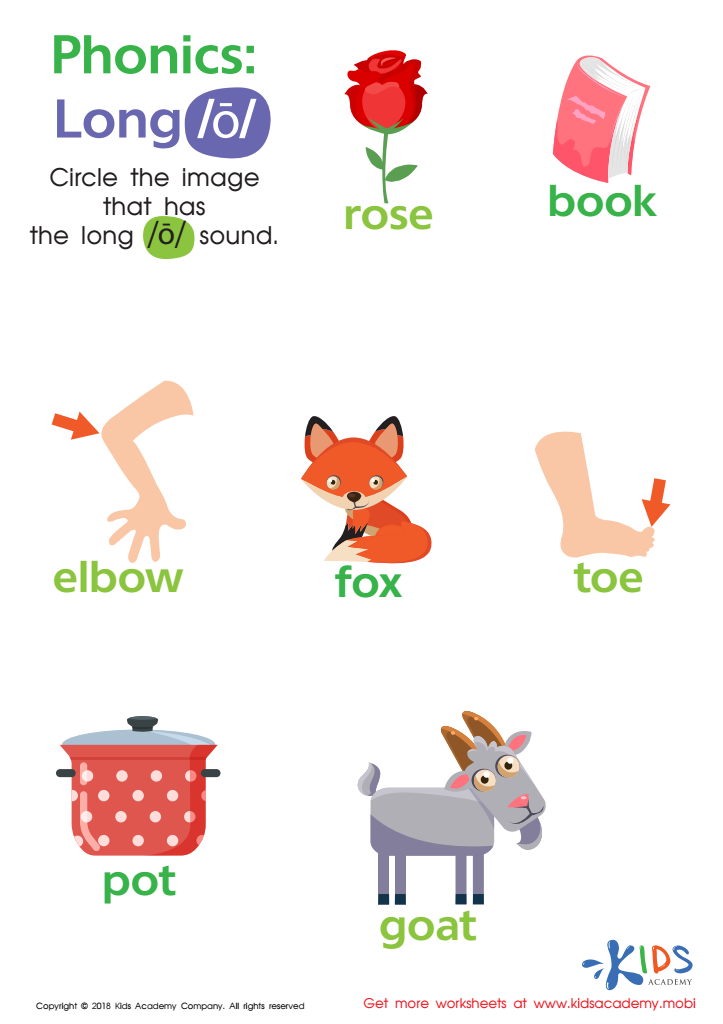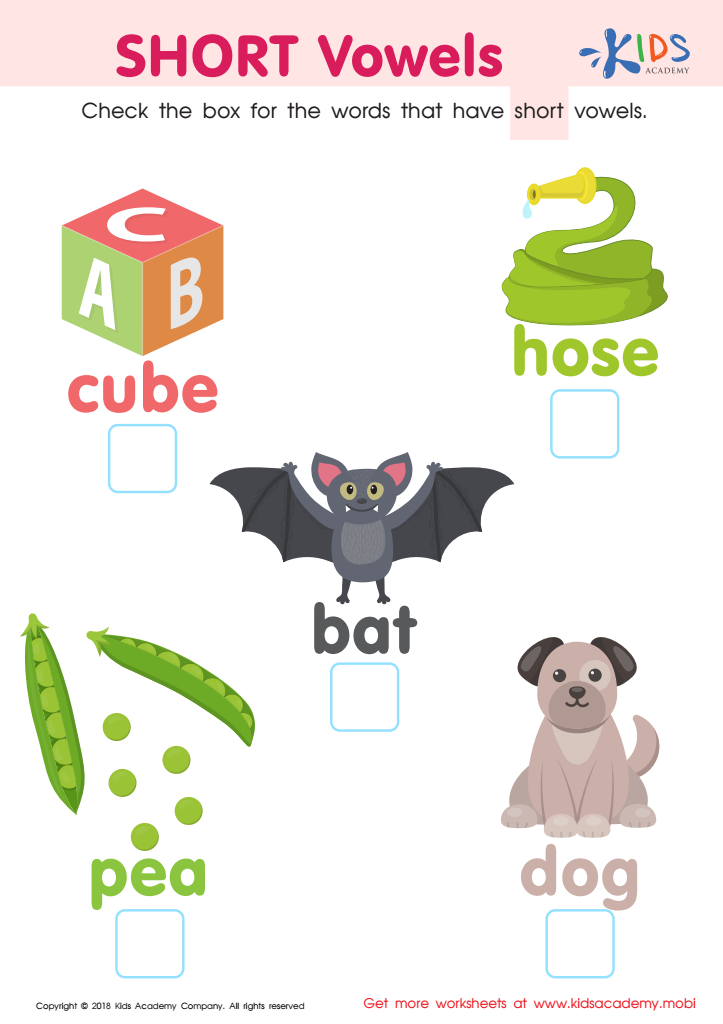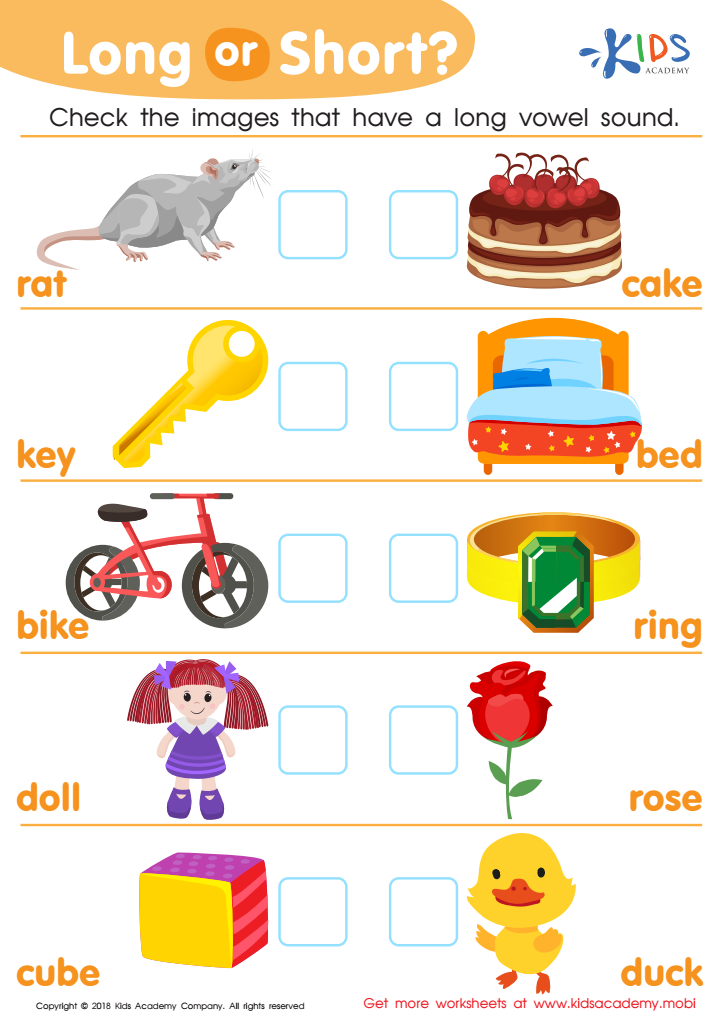Vocabulary enhancement Vowels Worksheets for Ages 3-5
4 filtered results
-
From - To
Discover engaging "Vocabulary Enhancement Vowels Worksheets for Ages 3-5" designed to spark early learning excitement for young minds. Our expertly crafted worksheets focus on vowels, aiding children in recognizing, pronouncing, and developing essential word-building blocks. Fun activities strengthen vocabulary through interactive coloring, tracing, and matching exercises. Tailored specifically for preschoolers, these worksheets help lay a robust linguistic foundation, encouraging joyful exploration of English. Partner with us to enhance your child’s vocabulary skills, promote early literacy, and inspire a lifelong love for learning. Perfect for parents and educators aiming for comprehensive and enjoyable early childhood education.


The Short I Words Reading Worksheet


Phonics Long O Reading Worksheet


short vowels Worksheet


Long or Short Reading Worksheet
Vocabulary enhancement and vowel development are critical for children ages 3-5 because these fundamental language skills serve as the building blocks for future literacy and communication abilities. During these pivotal early years, children's brains are exceptionally receptive to language acquisition, making it an ideal time to focus on vocabulary and vowel sounds.
Increasing a child's vocabulary helps boost cognitive development, aids in better understanding of the world around them, and enhances their ability to express thoughts and feelings. A robust vocabulary also provides a strong foundation for reading proficiency, which is closely tied to academic success in later years.
Vowel sounds are particularly vital as they are the core components of phonetics. Mastering these sounds allows children to develop accurate pronunciation, which is essential for effective communication. Understanding vowel sounds can also help children when they begin to learn to read, as many early reading difficulties can be traced back to issues with vowel pronunciation.
Moreover, engaging in vocabulary and vowel enhancement activities fosters a nurturing and interactive environment, strengthening the bond between parents or teachers and children. This sense of connection and encouragement further motivates children to explore and enjoy learning, setting a positive precedent for their educational journey.
By focusing on vocabulary and vowels at this early age, parents and teachers provide children with essential tools for a successful future in reading, writing, and communication.
 Assign to My Students
Assign to My Students
















